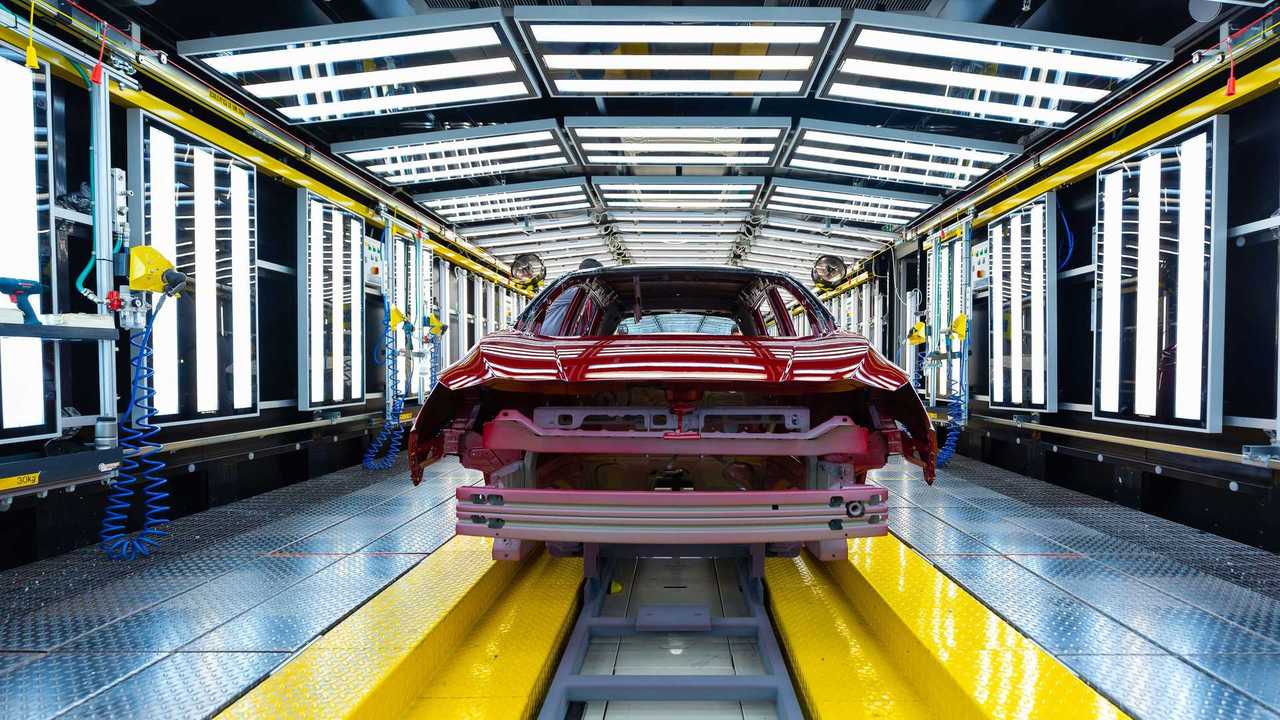EU (Parliament Politic Magazine) – A surge in car exports to the European Union has propelled the UK’s car manufacturing industry to achieve its most significant month of growth in 2023. According to data from the Society of Motor Manufacturers and Traders (SMMT), car production in the UK expanded by an impressive 39.8% in September 2023, resulting in a total of 88,230 units manufactured within the country.
This boost was primarily driven by a remarkable 32.2% surge in exports, with almost 60% of these exports directed to the EU. Domestic deliveries within the UK market also witnessed a remarkable increase of 65.9%, as noted by a statement from Renty, a car rental services provider.
UK Car Manufacturing Surges Thanks to Strong EU Exports
Furthermore, the production of electrified vehicles experienced a notable uptick, rising by 41.5%, thereby further solidifying their presence in the market. The SMMT declares September as a triple triumph for the industry.
This marks it as the most robust month of growth in 2023, the best September performance since 2020, and establishing the year-to-date UK car production at 659,901 units – an impressive 14.9% increase compared to the same period in 2022.
In September, the European Union took the lead, representing 58% of UK car exports, with 37,563 cars shipped, reflecting a substantial 46.1% growth compared to the same period in the previous year.
Analyzing the breakdown of exports to non-EU markets, the growth in car exports to the United States saw a significant increase of 19.8%, reaching 6,591 units. Similarly, exports to China surged by 28.2%, resulting in 4,776 units, while Turkey experienced an exceptional 212.0% rise, with 4,162 vehicles exported.
Impressive Growth in UK Car Production for September 2023
As nations worldwide transition towards zero-emission vehicles, the UK holds a strong position to become a prominent global hub for electric vehicle (EV) production, provided that the necessary investments and trade conditions are favorable,” comments Mike Hawes, Chief Executive of the SMMT.
Nonetheless, Hawes does express apprehension about potential EU regulations related to rules of origin for car components, which could potentially pose challenges for the UK’s electric vehicle production.
“As electrified car production gains greater prominence, the critical and immediate action required is for the UK and the EU to reach an agreement on postponing the impending, more stringent rules of origin requirements.
Considering the growing significance of electric vehicle production, the primary and pressing action required is for the UK and EU to come to a consensus on postponing the impending, more stringent rules of origin requirements.
UK Car Exports to EU Show Significant Increase
In October, European car manufacturers collectively appealed to the European Commission, seeking a delay in the implementation of post-Brexit “rules of origin” regulations, which they argue could hinder the production of electric vehicles within the bloc.
Car manufacturers are advocating for a three-year extension to the enforcement of a 10% tariff on cars exported between the UK and EU, provided that the car batteries are not of European origin. As of now, a significant proportion of electric car batteries are manufactured in China, South Korea, and Japan.
Car manufacturers are advocating for a three-year extension to the enforcement of a 10% tariff on cars exported between the UK and EU, provided that the car batteries are not of European origin. As of now, a significant proportion of electric car batteries are manufactured in China, South Korea, and Japan.
Read More: New Study Unveils the Most In-Demand Job Searches in the UK and Europe
Proposed Tariffs Could Impact EV Prices in UK and EU
The regulations specify that electric vehicles (EVs) must contain at least 45% EU or UK content starting in 2024, with a higher requirement of 50% to 60% for their battery cells and packs. Non-compliance would result in a 10% tariff.
This would translate into an estimated average price increase of £3,600 for UK-manufactured EVs sold in Europe and a £3,400 price hike for EU-produced EVs marketed in the UK.
The challenge lies in the underdeveloped state of the EV supply chain in both Europe and the UK, making it difficult to meet these stringent requirements. In light of this, the SMMT is advocating for a three-year postponement of the implementation of these rules to safeguard the competitiveness of the automotive industry in both the UK and Europe.

